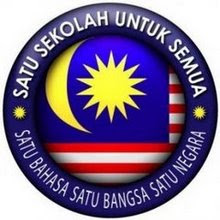Malaysia is planning to ban subsidized fuel for motorists from Singapore and Thailand. Domestic Trade and Consumer Affairs Minister, Shahrir Samad said that subsidized fuel will be available only to Malaysians. In future, they will have to show their national identity cards when buying fuel. Foreign drivers can still get fuel in Malaysia but they will be charged the full market rate. The minister hopes to implement the system by the end of the year at all petrol stations across the country.
For a reaction on Malaysia’s plans to create a two-tier petrol price, Saifulbahri Ismail, a Radio Singapore International DJ spoke with Dr Michael Li, a transport economist at the Nanyang Technological University in Singapore. Here is some of transcript of the interview.
Michael Li: “My natural reaction is that this change is really overdue for a long time. Subsidised gas is meant for locals so tourists should be charged at the normal rates. You see, I think they didn’t do it either enforcement problems. I think if they decide there will be more debates, trust me, for the next couple of months, how to do it, can they find a foolproof system, it needs some innovation in this process. Sometimes they design such a system to enforce such a scheme, it costs more than charging a normal price. Any regulation, there is a costs of enforcement. If you impose the regulation for the sake of imposing it at the higher cost of doing it, what’s the point of doing this regulation for operational wise it may not be worthwhile to do it.”
Saifulbahri Ismail: “What do you think are some of the challenges in implementing and enforcing this restriction?”
Michael Li: “Gas pumpers can always take bribes, by pumping at lower price, because it’s very difficult to keep track the exact volume and exact identity of certain pumping. So, therefore Singaporeans go there would like to have a local rate, they give a so-called tip, and we’ll get local rate. So that’s actually the bribe. So the enforcement can be a huge problem.”
Saifulbahri Ismail: “The Domestic Trade and Consumer Affairs Ministry has said that they are also looking at introducing a new card for Malaysians which could be used to purchase petrol. This is like an identification tool which is tied to the vehicle. How do think this two-tier petrol price can be enforced effectively?”
Michael Li: “So unless the billing, unless the billing itself capture ID, it cannot enforce it. So in other words whenever you pump, your receipt will capture your ID. Now that makes sense, that’s the only way to solve this problem. Otherwise, it’s difficult. How auditors are going to the gas station, and say hey how much you charge foreigners? Unless the receipt capture the ID of the driver, it’s almost impossible to enforce it.”
Saifulbahri Ismail: “Do you foresee this move to have an effect on the number of Singaporean cars topping up petrol in near-by places like Johor Bahru?”
Michael Li: “As long as the price for tourists or visitors is cheaper than Singapore, I don’t think it will have much impact. If they charge the same price as Singapore, which I think is very unlikely then there will be some impact.”
Saifulbahri Ismail: “Malaysia receives a lot of tourists from Singapore and Thailand which share close borders with the country. To what extent do you think differential petrol prices for visitors will have an impact on tourism in Malaysia?”
Michael Li: “As far as the visitor’s point of view, I don’t think people go to Malaysia specifically for cheap gas. It’s just for convenience. If the purpose of visiting Malaysia is for tour, for many other reasons, the cost of gas to the overall trip cost is very small. So, for that reason I don’t think it will have a huge impact on the tourism side.”
Saifulbahri Ismail: “This move to remove petrol subsidies for foreign motorists stems partly from the fact that the Malaysian government is trying to reduce their spending on fuel subsidies amid rising global oil prices. How much effect do you think this will have on reducing expenditure on fuel subsidies?”
Michael Li: “Well, why they have subsidy in the first place, I think in a way trying to reduce the cost, burden to the people either mainly for the livelihood of many people, so they rely on the petrol. Overall the price will continue to increase, it means that subsidy cannot continue the current level for very-very long time where the oil price now 110. So the pressure for price increase is there. For that, overall price increase might have impact for people who reduce the gas consumption, but bear in mind that the reaction to price changes to gases is very minimal. What I mean in economic jargon, the elasticity for gas is very low. So if you increase 20% the price in gas, you might probably look at 5 to 6% reduction in overall consumption.”
So, do you agree with the point raised or if you differ, please comment
Subscribe to:
Post Comments (Atom)






No comments:
Post a Comment